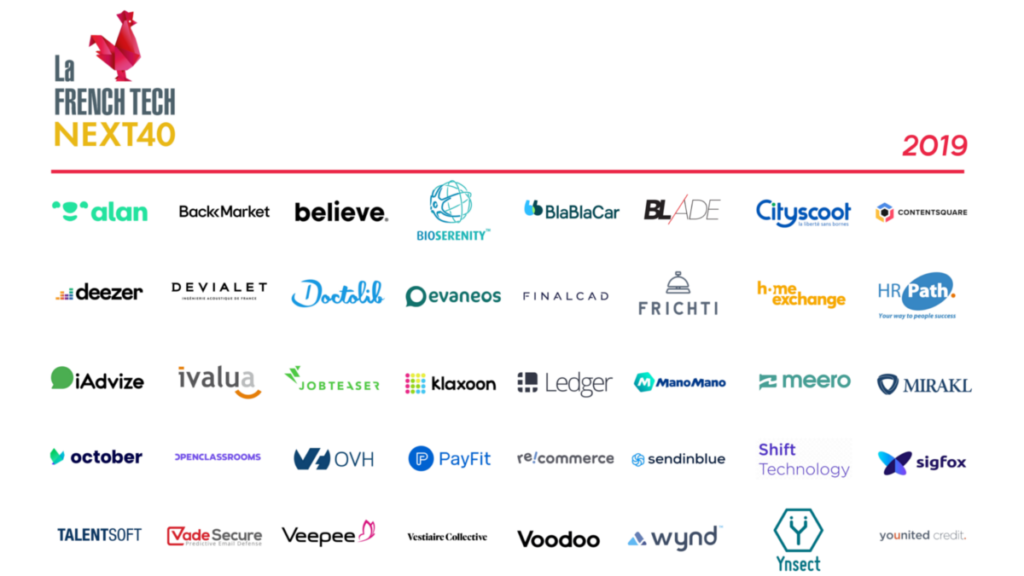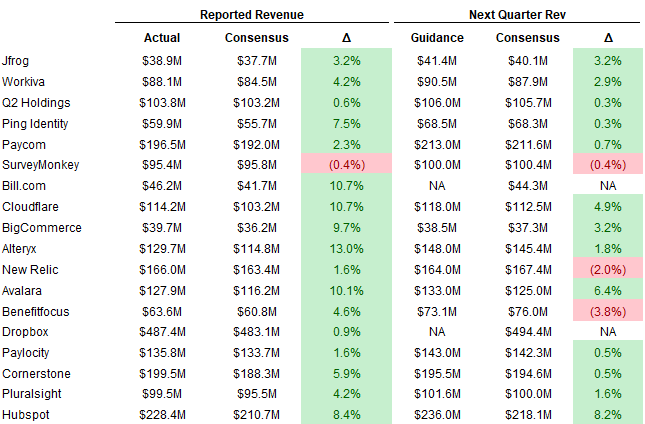This is The TechCrunch Exchange, a newsletter that goes out on Saturdays, based on the column of the same name. You can sign up for the email here.
Are you tired? I am. What a week. But, if you kept your eyes off American politics and instead focused on the stock market, this was not a week of stress at all. It was a celebration.
Yes, the election appears to be influencing stocks, with investors delighted at what could be a divided government. Their bet is that with different parties in control of different bits of the government, nothing will happen, and thus taxes and regulation won’t change. You can handicap that as you wish.
Regardless, this week’s stock market boom was a multifaceted affair. Software stocks rallied as the summer-era trade appeared to come back into vogue, in which investors pour capital into SaaS and cloud companies in hopes of parking their wealth into something with growth potential. Software earnings also look pretty good thus far (we chatted with JFrog and Ping Identity and BigCommerce), improving on their early performance.
Uber and Lyft drove their own rally as California voters decided that their long-standing labor arbitrage would stand. And then Uber failed to vomit on itself during its earnings report. Not bad.
Big tech stocks rose, as well. All this is to say that after some fear in the market a week ago, things are back to being heated for tech companies. And it is, as we expected, flushing out the next wave of IPOs.
Airbnb is expected to file publicly early next week (we have four questions here that we cannot wait to get answered), and Upstart actually filed this week, which you probably missed because you were watching something else. No worries. We are here for you.
Another notable possible include DoorDash, now unshackled from its expensive California regulatory battle. How many debuts shall we see? Hopefully many.
Market Notes
Upstart’s IPO filing brings a fintech IPO to the fore, and overall its numbers are pretty good if you discount worries about its customer concentration. Its debut could augur well for fintech as a whole, a segment of the startup population that, when viewed through the lens of PayPal’s earnings, is having a hell of a year.
Fintech VCs are active, as well, dropping over $10 billion into startups focusing on financial technology products and services in Q3. Payments, insurtech, wealth management and banking startups caught our eye as sectors to watch in that niche.
It was not a perfect week for fintech, however, as the U.S. government decided that the Visa-Plaid deal should not happen. Damn. As discussed on Equity, this deal could limit M&A interest for fintech startups from large players. Does that mean that fintech IPOs, then, have to carry the liquidity bucket for the sector?
Maybe! And if so, Upstart’s impending flotation seems to take on extra importance. We’ll keep you posted.
- Moving along, the Ant Group IPO termination by the Chinese government was probably the biggest tech story of the week, though as the company is worth a few hundred billion, it’s not really a startup event. For China, it’s a bad day, as it undercuts its goal of becoming a global financial center. For Ant, it’s a huge setback. For Jack Ma, it’s a warning, if not more.
- The nine-figure neobank rounds? Not done yet.
- Pony’s epic raise this week makes the point that self-driving tech is not dead. Indeed, the great race to let computers drive continues. Just more slowly than everyone had hoped.
- Udacity underscored the edtech boom by raising $75 million in debt and reported “Q3 bookings up by 120% year-over-year and average run rates up 260% in H1 2020.” Our own Natasha Mascarenhas also reported on booming edtech M&A volume, again highlighting that edtech has gone from zero to hero in 2020, at least from a VC perspective.
- $30 million for Hustle Fund, and €66.5M for All Iron Ventures, among other VC raises this week.
- ByteDance is looking for $2 billion at a valuation of $180 billion? Also, what happened to the whole TikTok fiasco?
- And TikTok’s rival’s IPO filing really shows how hard it is to build a similar network. It’s also very expensive.
Various and Sundry
Sticking under our target word count for the first time in so long I nearly forgot what it is, here are a few iotas and crumbs for your weekend:
- The volcano method for understanding the fintech revolution
- How Fortnite plans to get back onto iOS
- VCs dropping Form D filings on Election Day did not prevent us from finding them
- Some good news and some great news
Have a good weekend. Stay safe. Fight COVID-19. And listen to this.
https://ift.tt/eA8V8J Here comes the next IPO wave https://ift.tt/3nfnGzF












 (@RMac18)
(@RMac18) 











